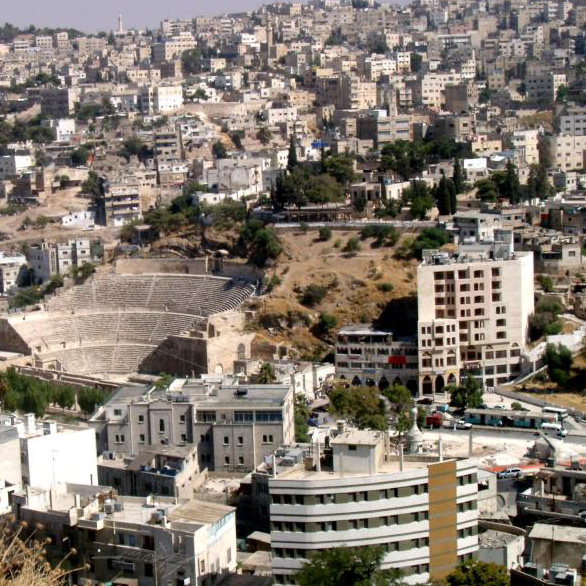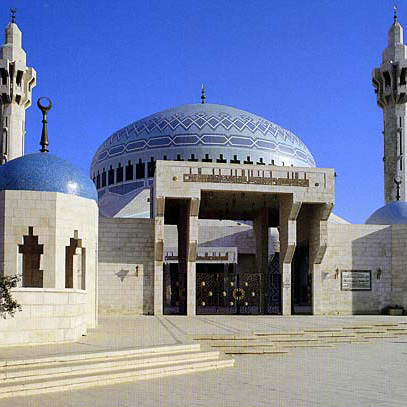Kingdom falls 15 places in Global Competitiveness Report
By Omar Obeidat
AMMAN –– Jordan’s ranking declined 15 places in the 2010-2011 Global Competitiveness Report, released by the World Economic Forum (WEF) on Thursday.
The Kingdom, which ranked 50th out of 133 countries in last year’s report, came in 65th on the list of 139 countries covered this year, according to a copy of the report made available to The Jordan Times.
The sharp fall in Jordan’s ranking was due to declines in the majority of the 12 pillars used to rank overall competitiveness of each country: institutions, infrastructure, macroeconomic stability, health and primary education, higher education and training, goods market efficiency, labour market efficiency, financial market sophistication, technological readiness, market size, business sophistication and innovation.
In the “institutions” pillar, Jordan went down from the 25th spot last year to 41st in this year’s report, alongside declines from 42nd to 61st in infrastructure, 57th to 66th in health and primary education, 42nd to 57th in higher education and training, and 43rd to 46th in goods and market efficiency.
The only improvement Jordan registered in the latest report came in the macroeconomic environment field, in which it rose to 103rd spot from 105th in the 2009-2010 report.
According to the WEF survey, Jordan dropped from 106th to 112th place in labour market efficiency, 52nd to 54th in financial market sophistication or development, 61st to 62nd in technological readiness, and 82nd to 84th in market size, plus steep drops from 49th to 66th place in business sophistication and from 59th to 68th in innovation.
The report indicated that among the most problematic factors for doing business in Jordan are tax regulations, tax rates, inefficient bureaucracy, restrictive labour regulations, access to financing, inadequately educated workforce, inflation and a poor work ethic in the national labour force.
Switzerland tops the overall ranking in the competitiveness report, while the US fell two places to fourth position, overtaken by Sweden in second and Singapore in third.
Jordan came in eighth among Arab countries in the report, which ranked Gulf countries among the 40 most competitive economies in the world, led by Qatar in 17th position followed by Saudi Arabia (21st), the United Arab Emirates (25th), Oman (34th), Kuwait (35th) and Bahrain (37th). Tunisia was also among the top 40, coming in 32nd place.
‘Bad news’
Economists described the Kingdom’s declining ranking as bad news for the economy.
Jawad Anani, a former Royal Court chief who has also held several ministerial posts, told The Jordan Times that he expected such a decline because the country’s business and investment environment has diminished recently.
“There are a lot of complaints by investors because investment promotion services are in decline and the problem is that this issue is not being addressed,” the economist said, elaborating that consultative services should be available to guide investors and follow up with them until their projects are implemented.
The one-stop shop for issuing licences for investment projects is not enough, he noted, stressing that foreign and local investors should be protected through efficient guidance.
Dropping 15 spots is an indicator that there is a problem in the country’s administrative bodies, and specifically a decline in public sector performance and productivity, Anani added.
Commenting on the labour market efficiency pillar, in which Jordan was ranked 112th among the 139 countries, Anani said that although Jordan is known for exporting qualified and highly efficient human resources, such as doctors, engineers and bankers, there is a labour market efficiency problem inside the Kingdom, which shows that there is a difference between the achievements of Jordanians working abroad and those who remain in the country.
“Our focus should be on improving our economic rankingة which requires upgrading administrative and government efficiency,” he remarked, pointing out that there is a recruiting problem even in high-ranking government posts.
Economist Yusuf Mansur described the “shocking” drop in the global competitiveness ranking as a “catastrophe”, agreeing with Anani that the country has an efficiency problem.
Mansur stated that the main reason for this “sharp retreat in the economic environment” is the way officials dealt with the global financial crisis, saying that Jordan was “not even close” to being affected by the global downturn but unstudied government decisions hurt the country.
Attributing the current conditions to inconsistent policies, the economist noted that “when a minister is appointed, he or she tends to change the decisions taken by former ministers”.
“There is a lack of consistency in decisions and regulations governing the business environment in the country,” Mansur said, pointing out that in 1996 Jordan became the first country in the region to issue reports related to the competitiveness of its national economy.
“I still recall when Jordan ranked 23rd worldwide in 1990s, and this sad position requires a complete review of how to manage the Kingdom’s economy,” Mansur urged.
Each ministry involved in forming economic policy should work to find out what happened to reach such an “embarrassing” position in this report, he stated, describing the Kingdom’s low ranking as a “scandal”.
“They should focus on achieving a competitive business environment because enhancing the performance of the business climate in such reports is not enough,” Mansur remarked, noting that such reports measure countries against each other and not against their own economic potential.
Jordan is a small country, and decision makers have a choice either to transform the Kingdom into another Singapore or to make things worse, he said, calling for steps to raise per capita income in order to make Jordan more attractive to investors.
Global Competitiveness Report fact sheet
• The Global Competitiveness Report, which is released annually by the World Economic Forum (WEF), ranks overall competitiveness worldwide using the Global Competitiveness Index, which this year is based on 12 pillars.
• These are: institutions, infrastructure, macroeconomic stability, health and primary education, higher education and training, goods market efficiency, labour market efficiency, financial market sophistication, technological readiness, market size, business sophistication and innovation.
• The rankings are calculated from both publicly available data and the Executive Opinion Survey, a comprehensive annual survey conducted by the WEF together with its network of partner institutes (leading research institutes and business organisations) in the countries covered by the report, according to the WEF.
• The survey is designed to capture a broad range of factors affecting an economy’s business climate. The report also includes comprehensive listings of the main strengths and weaknesses of countries, making it possible to identify key priorities for policy reform, according to the WEF.
News
23.08.2021
Meeting with King Abdullah II of Jordan
12.06.2019
Cooperation Agreement Signed in Hashemite Kingdom of Jordan
Russian-Arabic Business Council
Всех заинтересованных в установлении и развитии сотрудничества с деловыми кругами стран Арабского Востока приглашаем обратиться в Российско-Арабский Деловой Совет по адресу:
109012 г. Москва, ул.Ильинка, 5/2
тел./факс + 7 (495) 929-02-55
тел. + 7 (495) 929-03-13/15/16
эл.почта: rads@tpprf.ru
сайт: www.rusarabbc.ru







